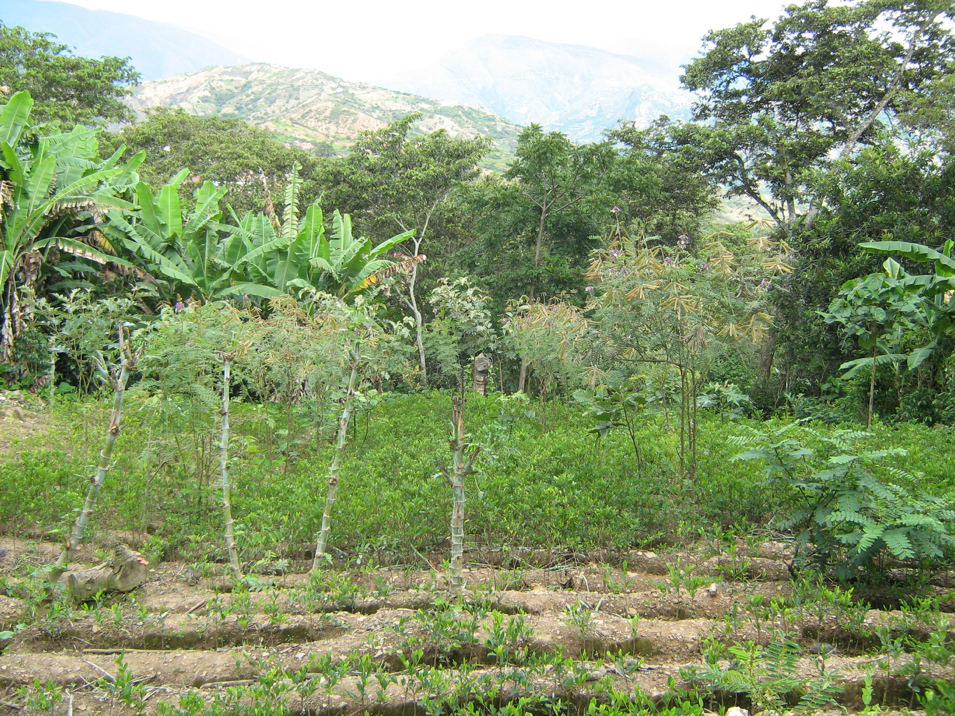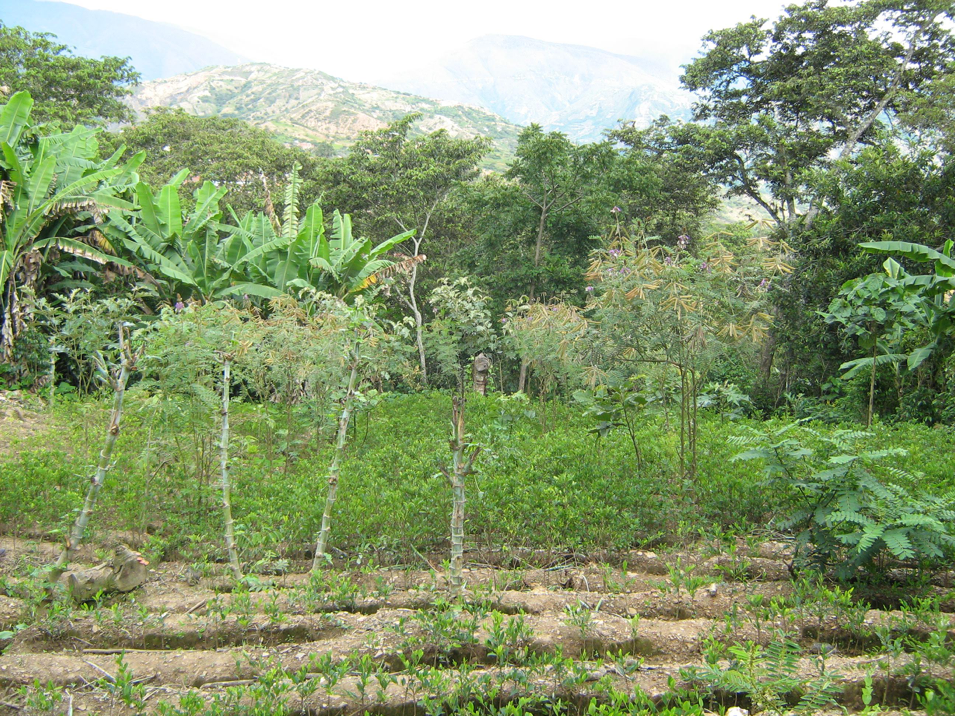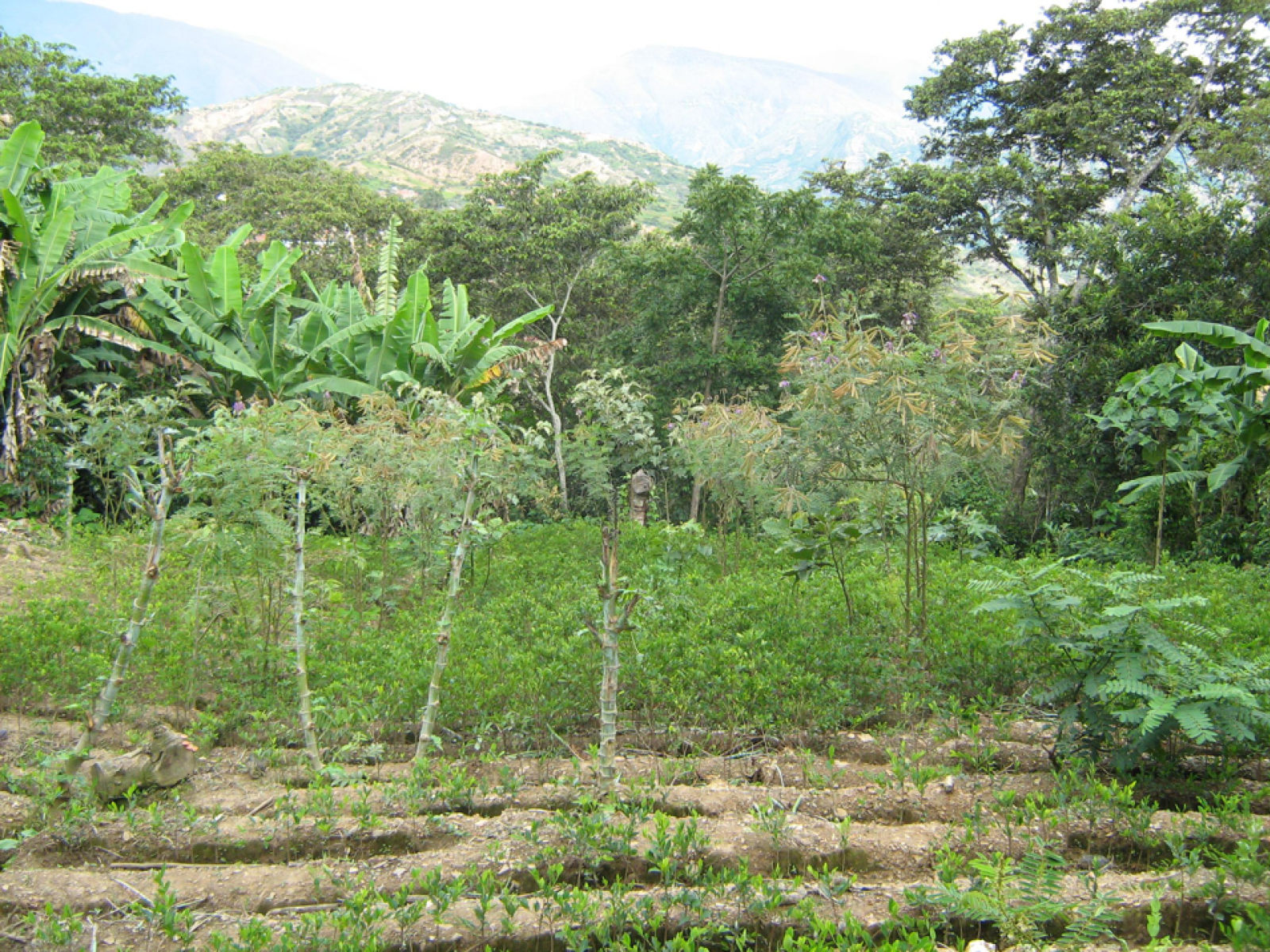An Overview Of Our Solution
- Population Impacted:
- Continent: South America
Organization type
Population impacted
Size of agricultural area
Production quantity
People employed
Describe your solution
Describe your implementation
External connections
What is the environmental or ecological challenge you are targeting with your solution?
Describe the context in which you are operating
Migrants from the Andes were given about 15 ha each since the 1950/60s plus inputs and trainings by the government, but they did not have an ecological understanding of the region. They have been clearing all the forest they could and implementing monocultures which, especially on the steep slopes of the Yungas and with the high precipitation quickly degrades soils. Usually the whole family works on the land, producing for the market. Main crops are in Alto Beni cocoa, in Caranavi coffee, in Corocio coffee and coca, and in La Asunta coca. The Yungas are the country’s main coca production area for chewing, infusion and other legal use on more than 14 000 ha, most of them monocultures. Coca accounts for around 80% of incomes from agriculture and is important for local families (not perishable, light in weight, high and stable prices even during inflations). A new law increasing the legal coca areas in the Yungas by 80% is expected for this year. The expansion of coca monocultures compromises local food production and agrobiodiversity, along with the related knowledge. Malnutrition in children prevails in Bolivia along with vulnerability to food insecurity, while obesity and related non-communicable diseases are strongly on the rise.
How did you impact natural resource use and greenhouse gas emissions?
Language(s)
Social/Community
Water
Food Security/Nutrition
Economic/Sustainable Development
Climate
Sustainability
SAFS replication by local families takes place without significant external financial inputs, many have benefitted from its profitability, especially when including mahogany which has been eliminated in the natural forest. Cash crops (especially high-quality) like organic cacao have reliable markets. Obstacles are more time and knowledge, but here are now families implementing SAFS with employees, credits and significant investments and returns. We work with families sporadically but in the long term, without significant expenditures. Most local actors are organized in cooperatives which aids financial sustainability. Our institution depends on projects and consultancies, increasingly governmental (local/national) and private.
Return on investment
Entrant Image

Entrant Banner Image

